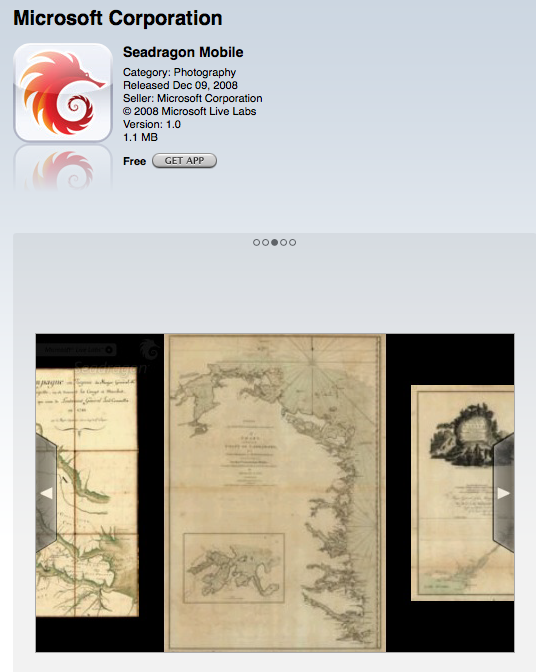SearchBiz: Google “Less Trusted,” Eric Schmidt On Meet The Press, Yahooligans “Vote” For New CEO, Microsoft Releases First iPhone App, Mobile To Be Primary Internet By 2020
The Wall Street Journal reports this morning that Google is negotiating with ISPs for “a fast lane for its own content” and is backing away from net neutrality. However, Google vigorously disputes this characterization and explains that instead it is seeking to “‘colocate” caching servers within broadband providers’ own facilities,” which has the practical effect […]
The Wall Street Journal reports this morning that Google is negotiating with ISPs for “a fast lane for its own content” and is backing away from net neutrality. However, Google vigorously disputes this characterization and explains that instead it is seeking to “‘colocate” caching servers within broadband providers’ own facilities,” which has the practical effect of speeding up content delivery. Google argues that these relationships are non-exclusive and that the company “remains strongly committed to the principle of net neutrality.”
However Om Malik argues that, as a practical matter, Google has resources to engage in these colocation agreements and that in itself offers an unfair advantage.
The Google critics are out today. Among them, Garrett Rodgers points out that Google has substituted its own Chrome browser as the “default” browser for Firefox in the Google (software) Pack. In fairness Google hasn’t removed Firefox from the list; Firefox is still there it’s simply no longer the default browser. It’s also unclear how many people use the Google Pack. However Rodgers sees this as a blow to Mozilla.
Google suffered a symbolic blow itself, in falling off the most trusted companies list (re privacy) complied by Ponemon Institute and TRUSTe from a survey of 6,500 US users:
Source: Ponemon Institute/SF Chronicle
Meanwhile, Google CEO Eric Schmidt appeared on the NBC news show Meet the Press on Sunday and argued that technology innovation will get the US out of the current economic mess.
One of the industries badly in need of innovation is the newspaper industry. With double-digit losses in advertising revenue and major publishers on the cusp of defaulting on debt, the idea that the search engines should buy a newspaper company has returned. John Battelle points to a Deal story arguing in favor of a Google-NY Times “merger.” The likelihood of this is roughly — zero. However, the idea has circulated multiple times over the past several years, with Google and sometimes Yahoo as the white knight in the story.
Over in Yahooland, AllThingsD segments the potential Jerry Yang successors by type, based on the “votes” of former Yahoo employees and execs:
1. The Media Mogul: Bob Iger of Disney; Rupert Murdoch/Peter Chernin of News Corp.; Jeff Zucker of General Electric unit NBC Universal; or Les Moonves of CBS. (News Corp. is the owner of this Web site.)
2. The Insider: former Yahoo COO Dan Rosensweig and not so many for current President Sue Decker. Other execs mentioned are former Yahoos Jeff Weiner and Jeff Mallett . . . But several also pointed to board member John Chapple, who is the one most insiders say they are guessing will be the next CEO, especially since he has been reaching out to Yahoos on many levels and asking questions.
3. The Microsoftie or Googler: Yusuf Mehdi and Kevin Johnson of Microsoft, as well as Tim Armstrong of Google
4. The Fixer: Vodafone CEO Arun Sarin
5. Steve Jobs
There appears to be an opening for a new global VP-sales, marketing and services at Microsoft. According to AdAge, the current occupant of that seat, Bill Shaughnessy, is leaving the company for undisclosed reasons.
If that announcement came as a surprise to insiders, something of a surprise to outside Microsoft observers is that the company has launched its first official iPhone app, (although Live Search is formatted differently for the iPhone than other mobile browsers). The new app is Seadragon Mobile. Seadragon is the technology/platform behind Redmond’s super-cool Photosyth tools, which are partly on display with Seadragon. The app showcases a range of terrestrial and space photography and allows for impressive viewing and manipulation of the images at different levels of resolution:
Finally the Pew Internet & American Life project surveyed various academic and technology experts and others (sadly I was not one of them) about the future of the internet and found, among other things, that nearly 80 percent of respondents believe “the mobile device will be the primary connection tool to the Internet for most people in the world in 2020.” I believe that as well and think it will come sooner than 2020.
Contributing authors are invited to create content for Search Engine Land and are chosen for their expertise and contribution to the search community. Our contributors work under the oversight of the editorial staff and contributions are checked for quality and relevance to our readers. The opinions they express are their own.
Related stories

